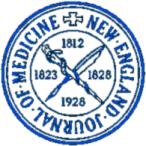A recent article in the New England Journal of Medicine reveals the shocking extent of how corrupt drug companies are.
"Laws are like cobwebs, which may catch small flies, but let wasps and hornets break through."
-- Jonathan Swift
 After reading "The Neurontin Legacy -- Marketing through Misinformation and Manipulation" in the January 8, 2009 issue of the New England Journal of Medicine, one may conclude that (1) America's prisons would be put to better use incarcerating drug company executives instead of pot smokers, and (2) society may need a return of public scorn via the pillory for those doctors who are essentially drug-company shills.
After reading "The Neurontin Legacy -- Marketing through Misinformation and Manipulation" in the January 8, 2009 issue of the New England Journal of Medicine, one may conclude that (1) America's prisons would be put to better use incarcerating drug company executives instead of pot smokers, and (2) society may need a return of public scorn via the pillory for those doctors who are essentially drug-company shills.
Drug-company corruption of American medicine is of course not news. What is news is that such corruption has become so egregious, so transparent, and so embarrassing that the New England Journal of Medicine, perhaps the most influential American medical journal, is now stating that "drastic action is essential to preserve the integrity of medical science and practice and to justify public trust."
Neurontin was approved by the Food and Drug Administration (FDA) in 1993 in doses of up to 1800 mg. per day as adjunctive therapy for partial complex seizures. How did U.S. annual sales of Neurontin increase from $98 million in 1995 to nearly $3 billion in 2004? The answer is "off-label" marketing, in which Neurontin manufacturer Parke-Davis (a division of Warner-Lambert purchased by Pfizer in 2000) marketed Neurontin to doctors for uses not approved by the FDA (because doctors can legally prescribe drugs for uses not approved by the FDA).
While aggressive off-label marketing to doctors is standard among drug companies, it is routinely kept quiet. But thanks to a Parke-Davis whistle blower, we have first-hand evidence of off-label marketing -- and how the Neurontin financial bonanza was created.
In 1996, David Franklin, a young biologist, took a sales representative position for Parke-Davis. But shortly after beginning the job, Franklin grew concerned that he was participating in the illegal marketing of Neurontin. Franklin reports that a Parke-Davis executive informed him and his fellow sales reps.:
"I want you out there every day selling Neurontin. . . .We all know Neurontin's not growing for adjunctive therapy, besides that's not where the money is. Pain management, now that's money. Monotherapy [for epilepsy], that's money. . . . We can't wait for [physicians] to ask, we need [to] get out there and tell them up front. Dinner programs, CME [continuing medical education] programs, consultantships all work great but don't forget the one-on-one. That's where we need to be, holding their hand and whispering in their ear, Neurontin for pain, Neurontin for monotherapy, Neurontin for bipolar, Neurontin for everything. I don't want to see a single patient coming off Neurontin before they've been up to at least 4800 mg/day. I don't want to hear that safety crap either, have you tried Neurontin, every one of you should take one just to see there is nothing, it's a great drug."
Franklin left Parke-Davis and filed suit (ultimately, United States of America ex rel. David Franklin vs. Pfizer, Inc., and Parke-Davis Division of Warner-Lambert Company) alleging that off-label marketing of Neurontin constituted false claims designed to elicit payments from the federal government. In 2004, Warner-Lambert resolved criminal charges and civil liabilities by agreeing to plead guilty and pay $430 million -- less than 15 percent of the $3 billion the drug company had grossed on Neurontin in 2004.
The current New England Journal of Medicine article concluded that the marketing of Neurontin involved "the systematic use of deception and misinformation to create a biased evidence base and manipulate physicians' beliefs and prescribing behaviors." This is one of many examples:
"In a recently unsealed 318-page analysis of research sponsored by Parke-Davis, epidemiologist Kay Dickersin concluded that available documents demonstrate 'a remarkable assemblage of evidence of reporting biases that amount to outright deception of the biomedical community, and suppression of scientific truth concerning the effectiveness of Neurontin for migraine, bipolar disorders, and pain.' For example, publication was delayed for a report on a multi-center, placebo-controlled study that found no effect of Neurontin on the primary outcome measure for neuropathic pain because 'we [Parke-Davis employees] should take care not to publish anything that damages neurontin's marketing success.'"
Exactly what does it take for drug executives to do jail time?
And let's not kid ourselves about the innocence of doctors. The tactics used by Parke-Davis and other drug companies to manipulate doctors make it clear that too many doctors have been willing participants in the corruption of their profession.
 The New England Journal of Medicine discusses some of the practices used by Park-Davis (and commonly used by other drug companies): recruit local physicians who are then trained and paid to serve as speakers in "peer-to-peer selling" programs; financially cultivate renowned professionals, so-called "thought leaders;" financially influence academics with educational grants, research grants, and speaking opportunities worth hundreds of thousands of dollars; create drug "advisory boards" to launder pay offs to "friendly" physicians; provide doctors employed by medical-education companies with "unrestricted educational grants" to produce programs that promote off-label (unapproved) uses of drug; fund doctors' "research" that in fact is designed and commissioned to promote a specific drug; and credit doctors as authors for ghost-written research articles that downplay drug ineffectiveness or lack of safety.
The New England Journal of Medicine discusses some of the practices used by Park-Davis (and commonly used by other drug companies): recruit local physicians who are then trained and paid to serve as speakers in "peer-to-peer selling" programs; financially cultivate renowned professionals, so-called "thought leaders;" financially influence academics with educational grants, research grants, and speaking opportunities worth hundreds of thousands of dollars; create drug "advisory boards" to launder pay offs to "friendly" physicians; provide doctors employed by medical-education companies with "unrestricted educational grants" to produce programs that promote off-label (unapproved) uses of drug; fund doctors' "research" that in fact is designed and commissioned to promote a specific drug; and credit doctors as authors for ghost-written research articles that downplay drug ineffectiveness or lack of safety.
The New England Journal of Medicine is now warning physicians that medicine's corruption by drug companies has threatened public confidence in their profession. If those physicians who are not drug-company shills want to save their profession, they might want to start taking aggressive actions against their colleagues who are on the take. Perhaps it will help motivate clean physicians to be reminded that history shows that any institution -- no matter how large and powerful -- can arrogantly cross those lines leading to its demise.
Addendum By HealthWyze Staff -- The Unintended Effects of Neurontin Use
Back pain; changes in vision (double or blurred vision); clumsiness; constipation; diarrhea; dizziness; drowsiness; dry mouth; nausea; stomach upset; tiredness; vomiting; weight gain. Severe allergic reactions (rash; hives; itching; difficulty breathing; tightness in the chest; swelling of the mouth, face, lips, or tongue); abnormal thoughts; aggressive behavior; back and forth eye movements; behavioral problems, change in school performance; chest pain; confusion; fainting; fast, slow, or irregular heartbeat; fever, chills, or sore throat; hyperactivity; loss of coordination; memory loss; mental or mood changes (eg, hostility, mood swings); numbness of an arm or leg; one-sided weakness; restlessness; seizures; severe headache or dizziness; shortness of breath; speech changes; suicidal thoughts or actions; swelling of the hands, legs, or feet; tremor; trouble concentrating; twitching.
The set of side-effects above clearly demonstrate that this pharmaceutical attacks the brain, central nervous system, and cardiovascular system. Thus, it is likely to induce psychotic reactions (ie. murderous rampages), like other such psychogenic medications: that is, if it doesn't kill you first.
Related Links
Health Wyze audio interview with Bruce Levine
When Liberals and Conservatives are Two Sides of the Same Oppressive Coin
Psychiatry's 'Shock Doctrine': Are We Really Okay With Electroshocking Toddlers?
Sharp Rise in U.S. Military Psychiatric Drug Use and Suicides
